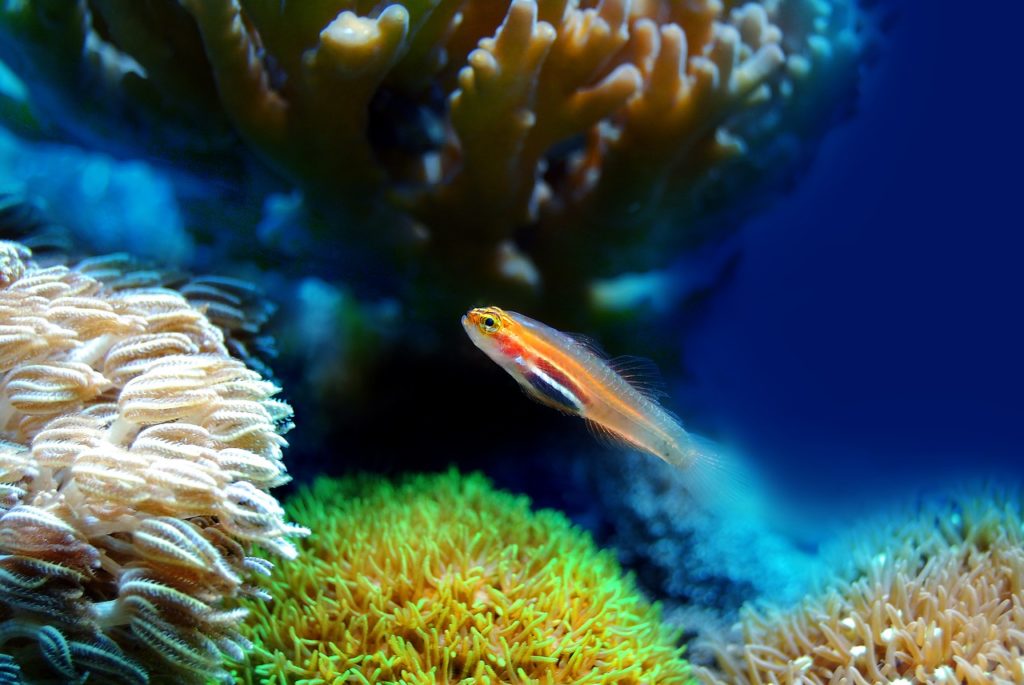Are you fascinated by sea life? Have you an appetite to learn more about marine organisms and the environment they interact with? Are you an avid Discovery channel fan and envision spending your days working with all things aquatic? Taking a courses in marine biology could be your dream come true. Here’s how to become a marine biologist in Ireland:
Courses in Marine Biology
In Ireland, there are both undergraduate and post-graduate courses in marine biology available to gain a qualification. At an undergraduate level, there are two full-time courses currently available. The Bachelor of Science degree in Applied Freshwater and Marine Biology and Marine Sciences. At post-graduate level, there is a one-year full-time MSC in Marine Biology. NUI Galway accepts applications for their full-time structured PhD in Marine Sciences. Furthermore, the Bachelor of Science degree in Applied Freshwater and Marine Biology degree programme is offered by Galway-Mayo Institute of Technology. GMIT also have some masters programmes such as Marine Biological Resources (International masters) and an MSc in Applied Marine Conservation.
First Steps
The first step on your path to becoming a marine biologist is to ask yourself what intrigues you the most about the ocean? First of all, do your research to determine if it is the right career for you. There are regular workshops on marine life across Ireland. Also, colleges encourage prospective students to visit their campuses and speak to lecturers and students. You should also consider options for volunteering for a marine biology-based organisation.
Get Qualified
The next step is to attain a qualification in marine biology or another relevant biological science. There are a number of course pathways to become a marine biologist. Applicants should consider studying Zoology, Plant Biology or any of the biological, bio-molecular or biochemistry sciences because these will give students the opportunity to specialise in marine biology at post-graduate level.
What will you study?
On a course in marine biology, you will study everything from large ocean animals to the tiny organisms they consume. Marine biology courses offer modules on marine biology, earth science, chemistry and experimental physics. Students will also cover mathematics, applied maths, statistics, zoology, oceanography, meteorology, botany, geology and microbiology. Students study all marine microbes, plants and animals over the course of four years.
Furthermore, students learn through a mix of classroom, laboratory and field research learning activities. They will learn how to use instruments designed to track organisms and measure the elements of the environment. They will also learn how to analyse the health of various components of the marine environment and use computer modelling to build predictive data for the marine ecosystem.
Field research may also include studying the microorganisms that inhabit lakes and collecting field samples of biological samples and non-living organisms to perform dissections and analyses.
Career prospects as a marine biologist
Marine biology can take you to fascinating places, allowing you to do what you love while you travel and meet a diverse set of people. There are many sub-disciples to marine biology that include microbiology, behavioural ecology, genetics and education. Graduates can seek to specialise in one of these areas through employment or at post-graduate level.
Marine scientists work for government as well as non-government organisations. Most noteworthy are marine research institutes, universities and commercial companies. Employers include the Marine Institute, Bord Iascaigh Mhara and the EPA.
Marine Specialists
Graduates become ecologists, oceanographers and wildlife biologists. Others work in aquariums and zoos and as coastal resource workers. In addition, there are a number of highly specialised areas such as hydrology. This is where biologists study the surface water and seek to find ways to eliminate water pollution. Finally, there are specialities such as biotechnology, involving the development and testing of new drug treatments derived from the sea.
Search for a course in marine biology on Courses.ie.












Hi Laura
My nephew is looking to do marine biology when he leaves school, he’s 13 now and has had a passion for this since he was about 5 or 6
Can you direct me as to a course he could go on or Books he could study to help him understand more about this career
I look forward to hearing from you
Thanks
Darren
Hello Darren,
How fantastic that he knows what he wants to do at such a young age. What would make the most sense for you both is picking his first choice college course and reaching out to one of the tutors. People are often more than happy to have a coffee and a chat, not matter what the industry. We have courses online at NUIG and UCC, so do a bit of research into the departments as most academics will have direct emails online:
https://www.courses.ie/course-search/?search_keywords=marine&search_region=&site_type=&search_qualification=
If you’re Dublin-based, Trinity also do research in this field.
And it might be worth reaching out to the people who are organising this (see below) too; they will have updates and insight relating specifically for young people, and they appear to have a mailing list too:
https://marinedimensions.ie/teens-marine-biology-course/
People can take leave and get busy, especially in summer, so if you don’t hear back, don’t be afraid to reach out to other people working in the area, and follow up with a phonecall. It’s great to keep those lines of communication open, as the ideal situation would be him getting work experience in two years or so.
All the best,
Gemma
My daughter is interested in studying marine biology is there a class/webinar like marine dimensions she might attend to get a feel for the course ?
I am looking for classes for my daughter who wants to study marine biology
Hi Laura ! Im making my leaving cert this year and im interested in marine biology , is there any courses and colleges you would recommened. I would just love some guidance as im not quite sure on where to look and which is best for me
Kind Regards
Jazmin!
Good afternoon,
I currently hold a certificate for occupational environmental health and safety. I have worked across a few different countries and industries already but I am curious to discover more about Marine Biology. For as long as I can remember, its what I always wanted to peruse. When I was 17 I got my PADI open water cert and my perspective and interest only grew (I’m 21 now). I do plan on leaving for Australia next year and so I’m not sure what the best route for an education in Marine Biology might be considering that I’m an Irish citizen.
look forward to hearing form you.
Kind regards,
Chloe